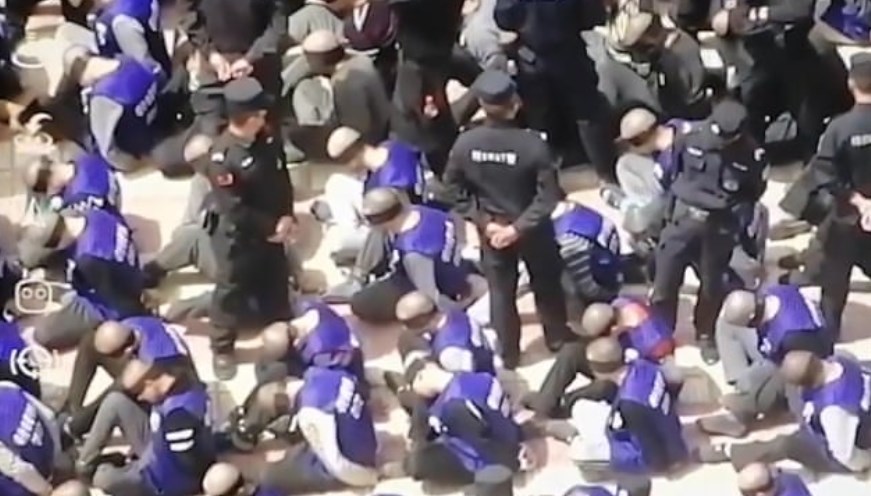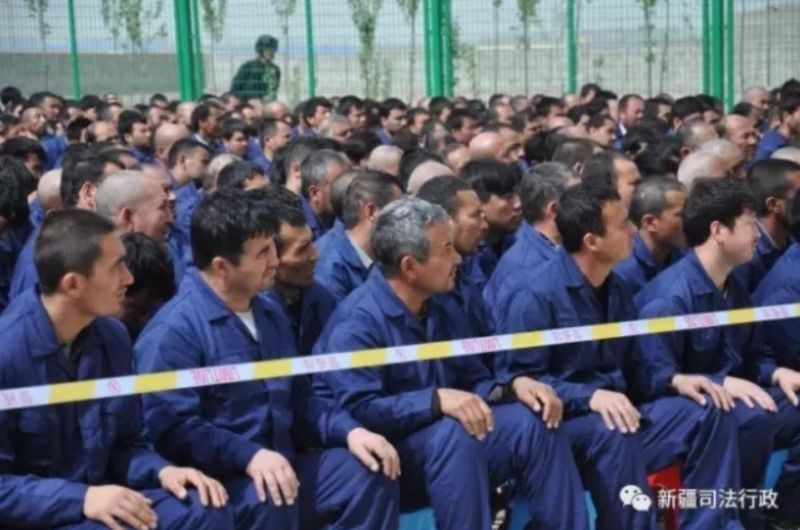German chemicals giant BASF said Friday it would accelerate its exit from two joint ventures in China’s Xinjiang region after allegations that its local partner violated the rights of the Uyghur minority.

Staff from Markor, with which BASF was working in the region, were alleged to have been involved in rights abuses of the members of the mostly Muslim group, broadcaster ZDF and news outlet Der Spiegel reported last week.
BASF had already announced at the end of last year plans to exit the joint ventures, which manufacture the chemical butanediol, due to commercial and environmental concerns.
But it said in a statement that it would speed up its exit following recent reports that “contain serious allegations that indicate activities inconsistent with BASF’s values”.
“BASF will accelerate the ongoing process to divest its shares in the two joint ventures in Korla” a town in the northwestern region, it said.
BASF said it had no indication that employees of the joint ventures were involved in rights violations, only staff of its local partner.

According to last week’s reports, Markor staff had taken part in visits to homes of Uyghur families in order to spy on them.
Reports about the visits were sent to Chinese authorities in 2018 and 2019, which led to the incarceration of many Uyghurs, they said.
BASF said that the situation in Xinjiang had always been part of its assessment when looking at the joint ventures, but that regular audits had not found any evidence of human rights violations.
Rights groups have long accused Beijing of a widespread crackdown on minorities in Xinjiang, including forced labour and detention camps.
Beijing denies allegations of abuse and insists its actions in Xinjiang have helped to combat extremism and enhance development.
BASF has been ramping up its presence in China in recent years, and is building a 10-billion-euro ($10.8-billion) chemical complex in the southern province of Guangdong.
It has fiercely defended its investments there, with chief executive Martin Brudermueller in 2022 warning against “China-bashing” over Germany’s business ties to the world’s number two economy.
Xinjiang is home to numerous factories that supply multinational companies, including big-name Western brands.
Another German company, Volkswagen, faced accusations of using forced labour at its factory in Xinjiang. But the automaker said in December that an audit it had commissioned found no evidence.
Dateline:
Frankfurt, Germany
Type of Story: News Service
Produced externally by an organization we trust to adhere to high journalistic standards.
Support HKFP | Policies & Ethics | Error/typo? | Contact Us | Newsletter | Transparency & Annual Report | Apps
Help safeguard press freedom & keep HKFP free for all readers by supporting our team

LATEST FROM HKFP
HKFP has an impartial stance, transparent funding, and balanced coverage guided by an Ethics Code and Corrections Policy.
Support press freedom & help us surpass 1,000 monthly Patrons: 100% independent, governed by an ethics code & not-for-profit.










